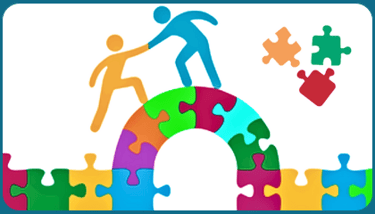Unintended Consequences: The Impact of Fear-Driven Decisions
Look into the mirror, understand, and then let's get to work together!
BE PREPAREDPERSPECTIVE
Mark Boatwright-Frost
11/7/20244 min read


Understanding Unintended Consequences
Unintended consequences refer to outcomes that are not the intended result of an action or decision. They can emerge from decisions made under duress or influenced by emotional responses, particularly fear. This phenomenon can occur in various domains, including politics, economics, and personal conduct. The notion of unintended consequences serves as a poignant reminder of the complexities inherent in human decision-making, especially when individuals or groups act impulsively or reactively.
Historically, there are several notable instances that illustrate the impact of fear-driven decisions. For example, following the attacks of September 11, 2001, the U.S. government implemented extensive surveillance measures, ostensibly to enhance national security. While the intention was to prevent further terrorist attacks, these actions raised significant concerns regarding privacy and civil liberties, illustrating a significant unintended consequence of heightened fear. Similarly, during the Cold War, the arms race was largely driven by the fear of nuclear annihilation, ultimately leading to a global standoff that created long-lasting geopolitical tensions.
Understanding the dynamics behind unintended consequences is essential for informed decision-making. The process requires individuals to consider a broader perspective before arriving at conclusions. It urges decision-makers to evaluate potential implications and consequences over different time frames and contexts. Critical thinking plays a pivotal role in this analysis, enabling individuals to anticipate possible repercussions that may not be immediately visible. By doing so, one can mitigate risks associated with fear-driven choices and develop a more comprehensive understanding of the complex interplay between decisions and their outcomes.
The Role of Fear in Decision-Making
Fear is a fundamental and powerful emotion that can significantly influence decision-making processes. During times of political or social upheaval, the manifestations of fear often become amplified, prompting individuals and groups to react rather than reflect. This emotional response can be traced to deep-seated psychological factors that compel people to prioritize immediate safety over long-term considerations. When confronted with uncertainty, individuals may succumb to feelings of anxiety that cloud their judgment, leading to choices that are primarily reactive rather than rational.
One of the most salient impacts of fear-driven decisions is the creation of a sense of urgency. This urgency can overshadow careful deliberation, causing individuals to overlook potential consequences. For instance, in crises such as natural disasters or economic downturns, the instinct to protect oneself or one's community can drive people toward extreme measures. The fear of missing out on urgent actions, whether it be stockpiling resources or supporting drastic political reforms, often results in choices that may not align with their long-term interests.
Additionally, fear can create an environment where misinformation thrives. In the absence of clear information, individuals may lean towards sensational narratives that resonate with their fears, further complicating their decision-making framework. This reliance on fear-based messaging can contribute to a cycle of panic, where decision-making becomes increasingly erratic. As groups band together in fear, collective actions can lead to widespread consequences that are rarely beneficial in the long run.
Ultimately, understanding the role of fear in decision-making allows for a more nuanced perspective on public behavior during crises. By recognizing how anxiety shapes our choices, individuals and leaders alike can strive for more rational approaches to decision-making that take into account the broader ramifications of their actions, rather than succumbing to immediate impulses driven by fear.
Collective Responsibility in Outcomes
The essence of collective responsibility lies in the understanding that individual actions significantly contribute to broader societal outcomes. In times of uncertainty and fear, decisions are often influenced by personal biases, leading to behaviors that may perpetuate harm rather than foster unity. By acknowledging our shared role in shaping the political and social landscape, we can foster an environment where mindful and considered decision-making prevails over fear-driven responses.
As members of society, it is crucial to recognize that our choices, however small, ripple through the collective fabric, affecting others in ways we may not readily see. Whether through voting, community engagement, or daily interactions, each person's participation carves out the societal narrative. This interconnectedness compels us to engage in self-reflection, confronting our intrinsic fears and biases, which often cloud our judgment. Self-awareness is foundational; it guides individuals toward making decisions that not only serve personal interests but also prioritize the greater good.
Additionally, it is vital to engage in collective dialogue. Sharing experiences and perspectives cultivates a community where diverse views are respected, allowing for more nuanced understandings of various challenges. This collaborative spirit can help mitigate the effects of fear-induced decisions and pivot society toward more constructive outcomes. As we navigate this complex landscape, being conscious of how our actions intersect with others' realities is paramount.
Ultimately, fostering a sense of collective responsibility encourages not only individual accountability but also a shared commitment to positive change. By reflecting on our role and making conscious choices grounded in empathy, we can collectively advance toward a society that values inclusivity and shared progress over fear-driven division.
Looking Forward: Strategies for Thoughtful Decisions
Facing fear-driven decisions requires intentionality and a strategic approach to ensure that choices are reasoned rather than reactive. To cultivate a more analytical mindset, it is essential to establish clear frameworks that guide decision-making processes. One effective strategy is to implement the practice of pausing before making a decision. This pause allows for reflection and the opportunity to gather relevant information, reducing the likelihood of impulsive actions driven by fear.
Another crucial element is to actively seek diverse viewpoints. Engaging with individuals who hold different perspectives can provide a more comprehensive understanding of potential outcomes. This involves actively listening to others, thereby broadening one’s own view. By considering alternative opinions, individuals can better weigh the pros and cons associated with a decision, allowing for a more balanced approach. Moreover, discussing concerns and fears openly with trusted peers can often lead to new insights that might not surface when pondering independently.
Evaluating the potential long-term impacts of decisions is also a vital step in this process. Utilizing tools such as decision matrices can help visualize potential outcomes and consequences. Assessing risks and benefits in terms of their future implications encourages more thoughtful deliberation. Additionally, it can be beneficial to reflect on past decisions and their outcomes. Identifying patterns in past choices can inform future decisions, helping to avoid repeating mistakes driven by fear. By fostering this reflective practice, individuals may cultivate a mindset that values thoughtful decision-making in the face of uncertainty.
Ultimately, empowering oneself through awareness, reflection, and informed analysis leads to better decision outcomes. By implementing these strategies, individuals can better navigate the complexities of fear-laden choices, contributing to personal growth as well as enhanced societal well-being.
Thought on a human future... ~Mark Boatwright-Frost
The Resilient Community Movement
In today's ever-changing world, the importance of fostering resilience within neighborhoods and communities cannot be overstated. By facilitating connections among residents, we empower individuals to share their stories and experiences, creating a strong support network. This collaborative spirit not only enhances the well-being of community members but also amplifies their voices, ensuring that their unique human needs are recognized and addressed.
Contact and Connect
info@reseco.org
© 2024. All rights reserved.
